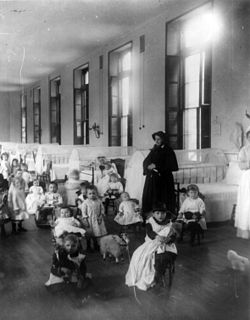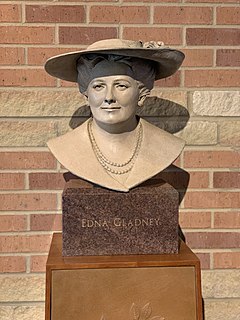Related Research Articles

Adoption is a process whereby a person assumes the parenting of another, usually a child, from that person's biological or legal parent or parents. Legal adoptions permanently transfer all rights and responsibilities, along with filiation, from the biological parents to the adoptive parents.

Bastard Nation is a North American adult adoptee political advocacy and support organization. It was founded in 1996 by denizens of the Usenet newsgroup alt.adoption Shea Grimm, Damsel Plum, Marley Greiner and Lainie Petersen. The original intent of the organization was to support adult adoptees in gaining access to their original birth certificates as a civil right, rather than as a vehicle for facilitating a search, which had been the aim of prior open records organizations. It is also distinguished from search-and-reconnection focused organizations in that it supports the full spectrum of the adult adoptee experience, including adoptees who do not wish to search and adoptees whose reconnections were a bad experience.
The international adoption of South Korean children was at first started as a result of a large number of orphaned mixed children from the Korean War after 1953, but later included orphaned Korean children. Religious organizations in the United States, Australia, and many Western European nations slowly developed into the apparatus that sustained international adoption as a socially integrated system. This system, however, is essentially gone as of 2020. The number of children given for adoption is lower than in comparable OECD countries of a similar size, the majority of adoptees are adopted by South Korean families, and the number of international adoptees is at a historical low.
An adoption reunion registry is a formal mechanism where adoptees and their birth family members can be reunited. Registries may be free or charge fees, be facilitated by non-profit organizations, government agencies or private businesses.
Closed adoption is a process by which an infant is adopted by another family, and the record of the biological parent(s) is kept sealed. Often, the biological father is not recorded—even on the original birth certificate. An adoption of an older child who already knows his or her biological parent(s) cannot be made closed or secret. This used to be the most traditional and popular type of adoption, peaking in the decades of the post-World War II Baby Scoop Era. It still exists today, but it exists alongside the practice of open adoption. The sealed records effectively prevent the adoptee and the biological parents from finding, or even knowing anything about each other. However, the emergence of non-profit organizations and private companies to assist individuals with their sealed records has been effective in helping people who want to connect with biological relatives to do so.

Edna Browning Kahly Gladney was an early campaigner for children's rights and better living conditions for disadvantaged children.

More adoptions occur in California each year than any other state. There is domestic adoption, international adoption, step parent adoption and adult adoption.
In the United States, adoption is the process of creating a legal parent-child relationship between a child and a parent who was not automatically recognized as the child's parent at birth.
Open adoption is a form of adoption in which the biological and adoptive families have access to varying degrees of each other's personal information and have an option of contact. While open adoption is a relatively new phenomenon in the west, it has been a traditional practice in many Asian societies, especially in South Asia, for many centuries. In Hindu society, for example, it is relatively common for a childless couple to adopt the second or later son of the husband's brother when the childless couple has limited hope of producing their own child.
The Adoption Information Disclosure Act, formally An Act respecting the disclosure of information and records to adopted persons and birth parents, also known as Bill 183, is an Ontario (Canada) law regarding the disclosure of information between parties involved in adoptions.
Ballot Measure 58 was a citizen's initiative that was passed by the voters of the U.S. state of Oregon in the November 1998 General Election. The measure restored the right of adopted adults who were born in Oregon to access their original birth certificates. The measure passed with 609,268 votes in favor, 454,122 against. It was immediately challenged by several birth mothers who had put children up for adoption, which delayed instituting the measure for a year and a half.

Beulah George Tann, known as Georgia Tann, was an American child trafficker who operated the Tennessee Children's Home Society, an adoption agency in Memphis, Tennessee. Tann used the unlicensed home as a front for her black market baby adoption scheme from the 1920s where young children were essentially kidnapped and sold to wealthy families. This occurred until a state investigation into numerous instances of adoption fraud being perpetrated by her closed the institution in 1950. Tann died of cancer before the investigation made its findings public. Tann's custom of placing children with influential members of society normalized adoption in America, and many of her adoption practices became standard practice.
The Uniform Adoption Act (1994) is a model law proposed by the U.S. Uniform Law Commission. It attempts to "be a comprehensive and uniform state adoption code that:
- is consistent with relevant federal constitutional and statutory law
- delineates the legal requirements and consequences of different kinds of adoption
- promotes the integrity and finality of adoptions while discouraging "trafficking" in minors
- respects the choices made by the parties to an adoption about how much confidentiality or openness they prefer in their relations with each other, subject, however, to judicial protection of the adoptee's welfare
- promotes the interest of minor children in being raised by individuals who are committed to, and capable of, caring for them."
The Hindu Adoptions and Maintenance Act (HAMA) was enacted in India in 1956 as part of the Hindu Code Bills. The other legislations enacted during this time include the Hindu Marriage Act (1955), the Hindu Succession Act (1956), and the Hindu Minority and Guardianship Act (1956). All of these acts were put forth under the leadership of Jawaharlal Nehru, and were meant to codify and standardise the current Hindu legal tradition. The Adoptions and Maintenance Act of 1956 dealt specifically with the legal process of adopting children by a Hindu adult, and with the legal obligations of a Hindu to provide "maintenance" to various family members including their wife or parents, and in-laws.
Adoption in France is codified in the French Civil Code in two distinct forms: simple adoption and plenary adoption.
The following outline is provided as an overview of and topical guide to adoption:
Until 2017, laws related to LGBT+ couples adopting children varied by state. Some states granted full adoption rights to same-sex couples, while others banned same-sex adoption or only allowed one partner in a same-sex relationship to adopt the biological child of the other. Despite these rulings, LGBT+ people and same-sex couples still face discrimination when attempting to foster children.

Adoption in the Philippines is a process of granting social, emotional and legal family and kinship membership to an individual from the Philippines, usually a child. It involves a transfer of parental rights and obligations and provides family membership. The Department of Social Welfare and Development (DSWD) defines adoption as a "socio-legal process of giving a permanent family to a child whose parents have voluntarily or involuntarily given up their parental rights."
In a confidential birth, the mother provides her identity to authorities, but requires that her identity not be disclosed by the authorities. In many countries, confidential births have been legalized for centuries in order to prevent formerly frequent killings of newborn children, particularly outside of marriage.
Deportations of Korean adoptees from the United States are an uncommon phenomenon, but have been cause for controversy over many years. Due to the institutional and parental failure to grant and apply for adopted children's citizenship, South Koreans adopted by American families prior to 1983 were left vulnerable to deportations, and many suffered from a lack of access to other resources American citizens have.
References
- ↑ Minnesota Statutes 1917 (Suppl.) section 7159, effective January 1, 1918. The court records, however, until 1945 remained available to the parties in interest and their attorneys.
- ↑ [Vital Statistics Registration Act, ch. 608, 1935, effective September 1, 1935, available at https://clerk.assembly.ca.gov/content/statutes-and-amendments-codes-1935, retrieved January 1, 2019]
- ↑ Kansas Stat. sec. 65-2423(a)(2017)
- ↑ Alaska Stat. sec. 18.50.500 (2017)
- ↑ Adoption Data from States Who Have Enacted Access from the American Adoption Congress
- ↑ Native American: The outplacement and adoption of indigenous children indigenous peoples of Canada and United States, Encyclopædia Britannica online